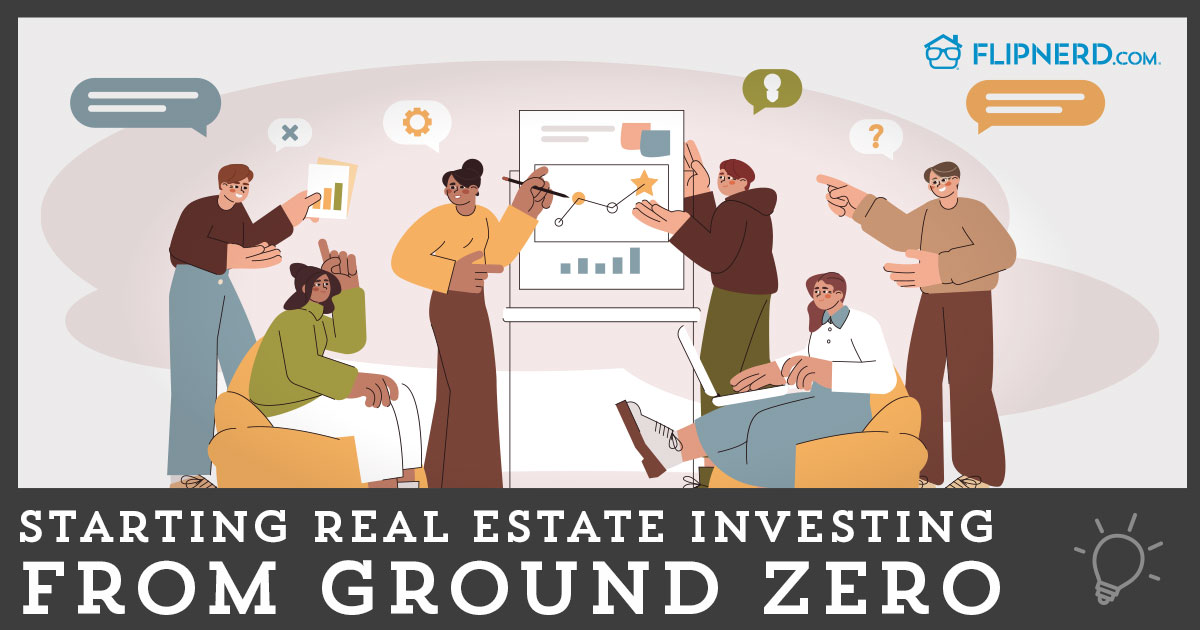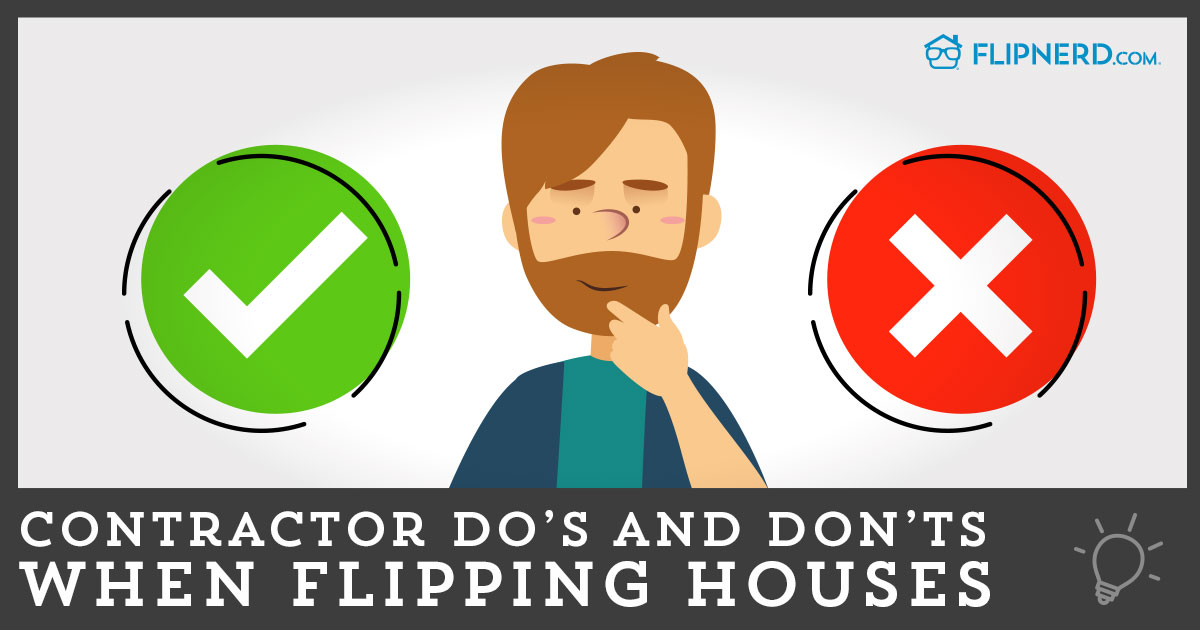You made the decision that you’re ready to actually do your first real estate investing deal. You’ve done your research, watched hours and hours of real estate investing videos, and you’re ready to take action!
What do you do first?
There are a few steps that you need to consider before securing your first deal.
1. Set Goals and Know Your “Why”
You should be setting both small and larger goals for your business. These goals will give you something to strive for during those first few months of uncertainty.
It’s hard to get in a rut if you don’t find a deal in the timeframe you expected. By giving yourself other small milestones such as creating a direct mail campaign and having X amount of letters sent out a month, you’re reminded that it’s a journey to your success.
Also, think about WHY you want to invest. Everyone has their reasons but it’s important to remember your “why” when you’re working on building up your business.
Do you want to spend more time with your family by not working so many hours?
Do you want financial freedom or to retire earlier than 65?
Your “why” is what pushes you to be the best you can be in this industry. Without it, you have no motivation to keep you going.
2. Set Up Your Legal Entity
You need to speak with an attorney who is familiar with real estate investing.
Let them know what type of investing you plan on doing and have them guide you with what type of legal entity you should set up so that you and your properties are protected, and you have the best tax setup as well.
Different states vary on this and you want to go to someone who knows what they’re talking about. It will be worth it to spend the time and money to get this set up right the first time.
3. Set Up a Monthly Budget for Marketing
Your budget is going to vary depending on the market you’re investing in and what you’re financially able to set aside for marketing.
If you know of other real estate investors in the area, talk to them and get an idea of how much they’re allotting each month for advertising.
There are multiple sources you can utilize for your marketing that varies in price.
Make your dollars count.
Paid online advertising including pay-per-click can drive motivated leads to your website. You can also take advantage of free advertising online.
You can post on Craigslist that you’re either looking for a deal or have a property to sell. You can also let your Facebook friends know you’re looking to buy and sell homes in need of repair.
There are local Facebook groups out there that you can network with as well and can find and sell deals in.
For direct mail, look into what list you want to buy and calculate the total cost it will be to buy the list, have postcards created, and have them mailed out.
If your budget is tight, try to get a list that has targeted criteria to give you the best chance at having the leads turn into appointments and the appointments turn into deals.
Your monthly budget can be modified from month-to-month so if you aren’t sure what price point you should be at, budget for a number that you can comfortably do and see how it turns out.
Keep in mind that with direct mail, you will want to send follow-up postcards in the upcoming months. You determine how often you want them to be sent but the goal is for them to consider you first when they’re ready to make that phone call to sell their house.
4. Set Up a Website
Set up a website that clearly states how you can be a solution to their problem if they need to sell their house quickly.
Have an easy way for them to reach out to you and be available when they call!
Your website works for you 24/7.
People are constantly online searching for anything and everything so having a reliable site that people can come across during their search for real estate investors in the area is crucial!
5. Secure Financing
Different exit strategies call for different types of loans.
You have options here.
If you have connections with private lenders (friends and family), they can be a source of financing that many times comes with a lower interest rate compared to a hard money lender.
Hard money lenders usually come with a higher interest rate but can close quickly and are great for short-term loans.
Community banks with just a few local branches can be a good source of financing as they have the ability to build a relationship with you, compared to the big banks.
You also have crowdfunding as a newer option for real estate investments.
For rental properties, you can look into government-backed loans.
6. Continue Your Education
At this stage in the game, you’ve probably done your research and learned about exit strategies, options for financing, and all you can about attending appointments.
Never stop learning!
Whether it’s learning from experienced real estate investors, watching training, finding a mentor, or networking with veteran investors, there’s always more you can learn.
Become as knowledgeable as you can because this will help with your confidence and in turn, help your sellers feel comfortable working with you because you know what you’re talking about.
7. Analyze Deals
Before you go to your first appointment, it’s a good idea to know how to calculate a deal.
If you have a mentor or are friends with a seasoned real estate investor, see if you can look at past deals and work through the numbers to get more comfortable with coming up with an offer.
Having a repair analysis worksheet will come in handy for calculating total repairs needed in a property. Supply costs will vary in different markets slightly so it’s important to know what materials and labor will cost.
8. Set Up a System for Taking Lead Calls
It can be you taking the phone calls at first, but it can be hard to scale if you don’t have help with this. Being on-call for taking calls can come at all times of the day and unless you’re available for this, it’s important to set up assistance for taking calls.
Virtual assistants can be perfect for this. You can provide them with a script to follow and can work during your off-hours. Virtual assistants can be in the states or overseas and range in hourly cost. If you’re in need of a virtual assistant, VirtualStaffNow can help.
Another option is to have a call center take calls. Your business is one of many that they’ll be answering calls for so their knowledge of your brand and real estate investing in general won’t be as high as compared to a virtual assistant dedicated to working for you.
9. Attending Your First Appointment
This is what you’ve been anxiously waiting for! You’ve done your research, set up your legal entity, advertised and received motivated leads, and you’ve scheduled your first appointment.
Remember that it’s important not to rush into talking about the house.
Start out by talking to the seller to find out their story. This will help find out their motivation to sell (if you weren’t told during the phone call).
Once you’ve walked through the property, let them know you’ll run numbers and will be able to give them an offer in 15 minutes or so and head to your car.
This allows you time to breathe and figure out what offer you can make after accounting for repairs.
Once you’ve gone on your first few appointments, you’ll find a rhythm that works for you.
You’ll learn what works and what doesn’t. Fine-tuning your strategies can help you build your business and become more efficient.
It takes time to scale your business but by building a solid foundation, you’ll be better equipped to handle any deals that come your way.










